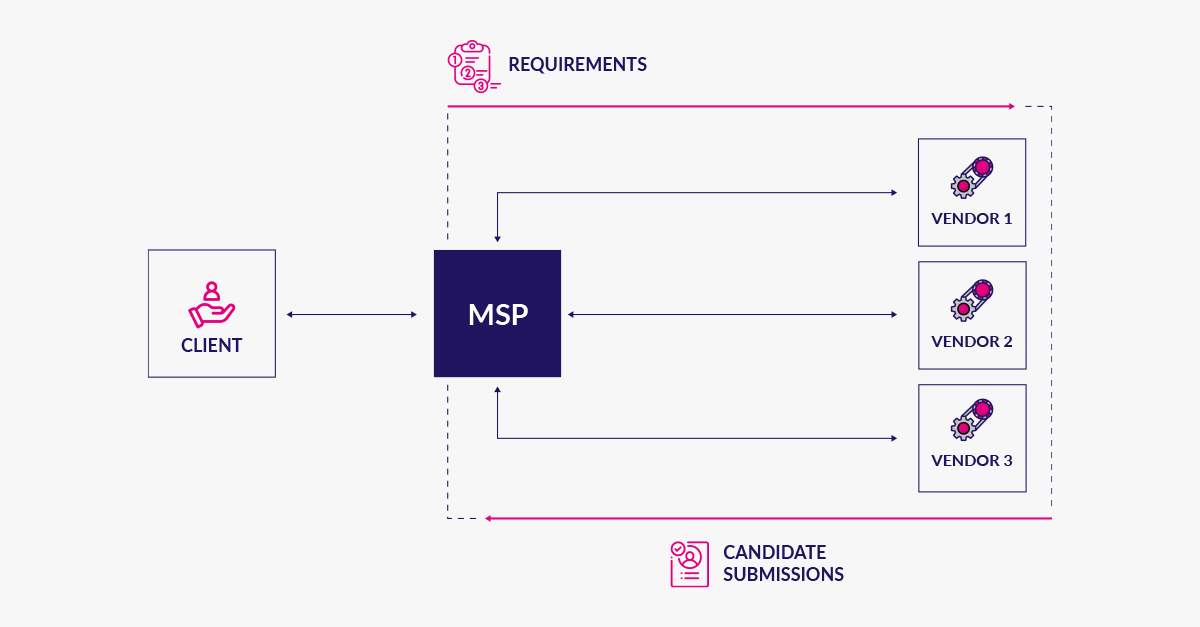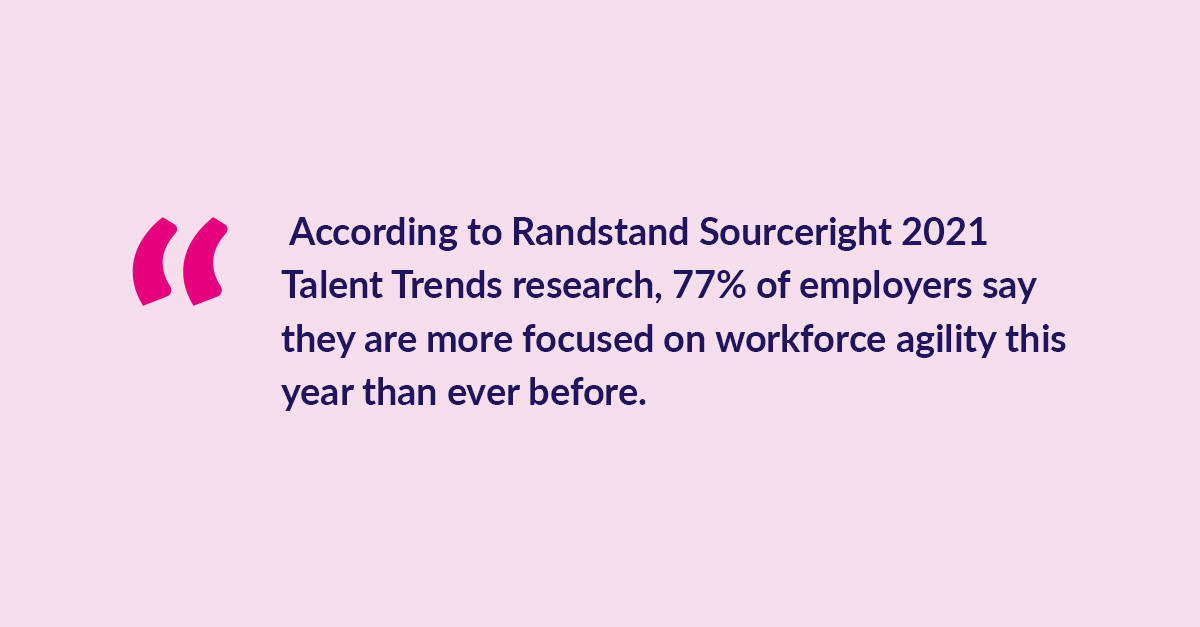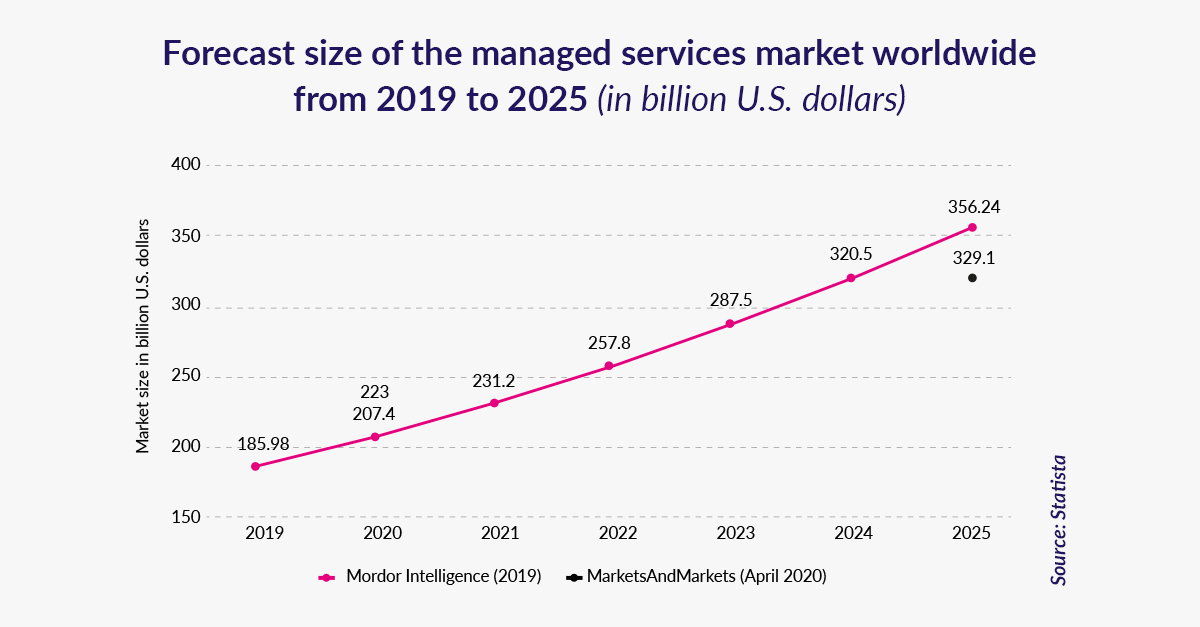MSP and VMS are related to the staffing process; however, they are not the same. MSP and VMS are two different things that can be combined to help you out through the recruiting process.
What is MSP?
Managed Service Provider or MSP is an outsourced agency that works the recruiting programs of a client company. MSP handles recruitment programs such as temporary staffing. MSP manages staffing agencies preferred by the client and sources candidates according to the client’s needs. MSP recruitment consists of a team of program managers and coordinators who help the client company source and manage temporary workers from their preferred staffing agencies.
What is VMS?
VMS or Vendor Management systems are online software/websites that allow the recruiters, MSP, and the client to exchange data and information online. VMS allows all transactions to happen online. VMS includes distributing temporary requirements, collection of candidate submissions, interview scheduling, job offers, billings, timecards, etc.
Now that we know what MSP and VMS are let us take a deeper look at how MSP and VMS work in the staffing process.

The Role of MSP in Staffing Process
Top companies realized they could reduce the costs of operations and workforce by outsourcing recruitment process. These companies, especially Fortune 1000 companies, outsourced their onboarding and temporary hiring to third-party service providers in exchange for lower costs of operations. That is how Managed Service Providers were born.
A managed service provider is a company that excels at dealing with temporary staffing programs. They work for the client as they work as a bridge between the client and the staffing agencies. MSP is unbiased and more efficient at hiring candidates.
MSP oversee activities such as:
- Obtaining requirements from the client
- Transmitting the requirements to the staffing agencies
- Ensures the selection and onboarding of the candidates
- Collecting timesheets, clearing approvals, clearing payments, and paying the staffing agencies
- Managing supplier performance with periodical scorecards
MSP can often conduct a conference call with the client and all the staffing agencies to transmit the exact requirements to all of them. Previously, a lot of MSPs were born out of staffing agencies. Thus, they were biased towards the agency. However, that has changed, and most MSPs these days are neutral and not biased towards any agency.
The Role of VMS in Staffing Process
VMS or Vendor Management Systems are software or websites that allows the MSP team to coordinate and exchange data with the client and the staffing agencies. VMS might or might not belong to the MSP provider. This happens because MSPs are chosen based on their services, and VMS is chosen based on the software features.
VMS performs tasks such as:
- Interact with the client’s HR team to pick up new requests
- Delivers the requirements to the staffing agencies
- VMS tracks different metrics related to the recruitment process. Such as how many days staffing agencies take to submit candidates, how many of the candidates back out, or what the rejection rate is?
- MSPs scrutinize these metrics and warn or boot staffing agencies depending on these metrics. MSPs bring in new agencies to replace the older ones.
While MSP is an independent entity working in sync with the clients and the staffing agencies, VMS is a software or website used by the clients, MSPs, and staffing agencies to conduct data transfers and transactions online.

How do VMS and MSP help the client and the recruitment process?
VMSes have changed the recruitment program and added benefits for all the parties involved. It saves time and allows the client or MSP to send requirements directly to the staffing agencies.
VMS is a computer program that sends job requirements to the MSP and staffing agencies. With a VMS, it is easier and faster to respond to job openings with available talent. It is also easier to pay and bill through the VMS.
Staffing agencies can submit talents using a VMS, and clients can use VMS to review the talents. In short, one technology made talent sourcing and hiring relatively more straightforward.
Before VMS came up, clients had to use mails or phone calls to notify the staffing agency about new requirements. They had to submit candidates through e-mails, and clients used to reply through the same. This process had room for errors. VMS completely changed that and eliminated the chaos within the recruitment process.
MSP or Managed Service Providers are outsourced providers who oversee and manage temp staffing requisition. Their job is to receive the requirements and then hire from the preferred staffing agencies (vendors). They will be responsible for the end-to-end contingent workforce management. From supplier engagement to strategic planning of the workforce and then offboarding; Everything is under the MSP.
MSP can provide more services depending on what the client needs. MSP can manage payroll services, build a talent pool, or help the clients in candidate marketing.
The Benefits of Combining MSP with VMS
MSP and VMS help both the client and the staffing agencies. Combining them and finding the perfect balance will allow you to boost the growth and productivity of your company.
The right MSP will have their VMS software that can be built into your HR system. Or they can use the software your company already has. Good MSPs will even introduce you to better VMS that can be more useful and suitable to your organization.
With a good MSP and advance VMS support, you or your HR team will have to spend less time on recruitment and staffing. MSPs will receive your requirements through the VMS, which then will be transmitted to the staffing agencies. Not only better communication and understanding, but VMS will also allow you to review the metrics related to the hiring plan.
A good MSP keeps track of the metrics and changes their process according to the needs. If the metrics show that a particular staffing agency is not working well, MSP will boot or warn them and, in the end, introduce a new staffing agency to replace them.
Combining MSP and VMS means combining expertise with technology. An expert with all the hiring industry knowledge and technology related to the hiring industry can make your life easier. They can use the data and metrics to make constant improvements in the talent acquisition process. This way, they can engage with the vendors and maintain a continuous stream of contingent workers to keep your company operating without any issues.

Any business where vendor management is introduced will soon need tools to reduce costs of operations. A Managed Service Providers can work with the tools you have in place or introduce new tools according to your needs and combine their expertise with the technology to improve your contingent worker program.
Save Time with MSP and VMS
MSP and VMS both will save your time. However, using both is not a bad idea either. If you want to outsource the contingent labor program, then MSP is needed. If you’re going to streamline it directly, then VMS is your best bet. However, using both is even better.
Working with contingent workers can allow you to recruit new and specialized talents. They can cover open positions and often help with other projects. Allowing an MSP or VMS to do the job for you will take the hassle out of the process. With MSP and VMS in working order, both contingent and in-house employees can get to work faster and offer the best services.
Using MSP and VMS depends on your needs and practices. If you have a vast pool of talents and prefer being in charge of the candidates, VMS will do the job for you. However, if you do not have a talent pool, MSP can build a talent pool for you. Not only that, they can source, hire, and streamline the contingent worker program and track all the metrics related to the program. They can even facilitate payroll services.
Outsourcing to MSPs is a worry-free move, and it benefits the business in many ways. With both MSP and VMS working for you, you can track all the progress and data and be in charge of everything without being the in-charge. You will get all the data whenever you need it, while the MSP will recruit, manage, and hire for you.
What is the relevance of MSP and VMS in the upcoming years?
VMS and MSPs now exist in 50%-60% of the Fortune 500 companies. They do reduce costs, increase efficiency and competition. However, many staffing agencies think they are being commoditized, and they have to work with their hands tied. People who oppose the idea say hiring managers are often on a “do not contact” list. This means they cannot receive feedback directly, which reduces the ability of a good staffing agency, as they are focusing only on the speed and costs. However, people who support the VMS and MSP systems think everyone has the same information, so the field is leveled for everyone.

With time, more talented candidates are choosing the freelancing path and temporary gigs to make a living. According to the new generation of talents, freelancing allows them to work more and earn more and give them the freedom to work on side projects or their passion. After the pandemic hit, freelancing now seems like a better option to most of the candidates. These candidates have excellent skills and can be suitable for your company.
With the use of MSP and VMS, it becomes more accessible to source, hire, and manage contingent workers. They have good skillsets, and they are valuable assets to your company. With MSP and VMS, the recruitment, management, and hiring process of contract workers become easier.
If your agency needs MSP VMS recruitment support to oversee your contingent and temp staffing process, then click here and book a call with us today.




